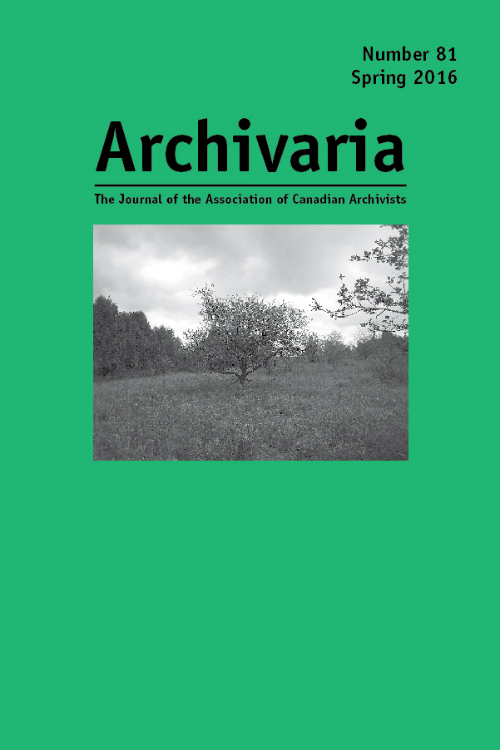Romance Writers’ Use of Archives
Abstract
The relationship between popular romance – a frequently marginalized and disdained genre – and the library and archival field has attracted varying degrees of attention. Yet the question of whether writers of popular romance use archives when researching their stories has been little studied. This article draws on a survey of 200 romance writers to show that, far more than many archivists may have thought, romance writers are a constituency, and quite often a passionate one. Nearly half of the respondents indicated that they have used archives for researching their works, with more using libraries. Romance writers enjoy working in archives, appreciate the level of detail that archival research enables them to bring to their work, and can feel inspired and even awed by what they find there. But like other “non-traditional” users, they also report feeling at times frustrated by their inability to locate materials because of inadequate guidance, limitations in travel, and a lack of digitized collections. Reflecting on these and other findings from the survey, the article offers an examination of potential benefits of the use of archives by romance writers and suggests further steps for research and outreach. It also considers the impact that archivists’ perceptions of researchers and topics as “serious” versus “frivolous” may have on interactions with users.
RÉSUMÉ
Le lien entre les romans d’amour populaires – un genre fréquemment marginalisé et jugé avec mépris – et le domaine des bibliothèques et des archives a attiré différents niveaux d’intérêt. Pourtant, la question à savoir si les auteurs de romans d’amour populaires se servent d’archives lorsqu’ils effectuent des recherches pour leurs histoires a été peu examinée. Cet article est basé sur un sondage auprès de deux cents écrivains de romans d’amour pour montrer que, de façon beaucoup plus fréquente que n’auraient pu l’imaginer plusieurs archivistes, ces écrivains forment un groupe important d’utilisateurs, souvent très passionné. Presque la moitié des répondants ont indiqué qu’ils ont fait des recherches dans des archives pour leurs écrits, et un plus grand nombre s’est servi de bibliothèques. Les écrivains de romans d’amour aiment travailler dans les centres d’archives, ils apprécient le niveau de détail que la recherche en centre d’archives apporte à leur travail, et ils se sentent inspirés, voire même émerveillés de ce qu’ils peuvent y trouver. Mais comme c’est le cas pour d’autres utilisateurs « non-traditionnels », ils affirment se sentir parfois frustrés de ne pas pouvoir repérer le matériel désiré, soit à cause d’orientation inadéquate, de limitations reliées aux déplacements ou de manque de collections numérisées. En se penchant sur ces faits et sur d’autres résultats du sondage, cet article offre un aperçu des bénéfices potentiels des archives pour les écrivains de romans d’amour, puis il suggère d’autres pistes de recherche et de sensibilisation. Il considère aussi comment les archivistes perçoivent les chercheurs et les sujets de recherche « sérieux » vis-à-vis les « frivoles », et l’impact que peut avoir cette perception dans les interactions qu’ont les archivistes avec les utilisateurs.
Authors of manuscripts accepted for publication retain copyright in their work. They are required to sign the Agreement on Authors' Rights and Responsibilities that permits Archivaria to publish and disseminate the work in print and electronically. In the same agreement, authors are required to confirm that "the material submitted for publication in Archivaria, both in its paper and electronic versions, including reproductions of other works (e.g. photographs, maps, etc.) does not infringe upon any existing copyright." Authors of manuscripts accepted for publication retain copyright in their work and are able to publish their articles in institutional repositories or elsewhere as long as the piece is posted after its original appearance on archivaria.ca. Any reproduction within one year following the date of this agreement requires the permission of the General Editor.





